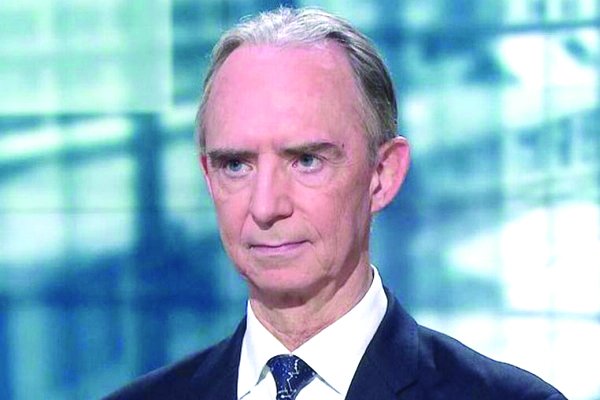Cost of import of pharmaceutical in Iran has increased and reduced availability of medicine: Finaud

TEHRAN - Marc Finaud, the former French Foreign Ministry spokesman, says that the Trump administration maintains exemptions from sanctions on humanitarian goods, but because of its banking sanctions against Iran also applicable to third countries, the cost of import of pharmaceutical in Iran has increased and reduced availability of medicine.
Former Senior Resident Fellow at the United Nations Institute for Disarmament Research (UNIDIR) adds “China seems to be determined to ensure the full implementation of the JCPOA, especially the provisions on reconversion of the Arak reactor for which it has special responsibilities.”
A senior member of Geneva Centre for Security Policy also says that “It will certainly go ahead with its transactions in the expectation that the 90-day limit will be extended.”
Following is the full text of the interview:
Q: We have recently witnessed the resignation of German Designated head of Europe-Iran trade entity (INSTEX). In this regard, the long overdue implementation mechanism will be postponed again. Don’t you think that the resignation happened so that the Europeans can buy enough time?
A: The German diplomat slated to head INSTEX resigned officially for “personal reasons” but in fact because of the controversy caused by his interview on YouTube critical of Israel and favourable to Iran. The E3 countries are eager to make INSTEX fully operational in order to protect EU companies from American sanctions and contribute to salvaging the JCPOA. The mechanism is now technically operational and several companies have registered, but the establishment of a special fund to buy debts back on the international markets still require financial authorizations.
Q: Is it possible that the special purpose vehicle for trade with Iran goes behind commercial export of pharmaceutical, medical devices and agri-food goods and covers oil trade?
A: As you know Al-Monitor cited three anonymous sources as saying French President Emmanuel Macron had raised the establishment of a $15 billion credit line. At this stage, INSTEX is only designed to facilitate transactions in humanitarian goods needed by the Iranian population and not directly prohibited by American unilateral sanctions. Russia has offered to join INSTEX if the mechanism was extended to the oil trade. Extending INSTEX beyond its initial purpose would be difficult to achieve and would delay further its operations. Meanwhile, despite lack of official confirmation, it seems likely that President Macron offered President Rouhani a credit line that could bypass US sanctions and would facilitate the oil trade. There are indeed a number of opportunities on the international oil market for Iran to export its production, in particular to big importers such as India and China.
Q: How do you evaluate the future of INSTEX as the US has threatened to put sanctions on foreign companies if it goes behind food and medical supplies?
A: Officially, the Trump administration maintains exemptions from sanctions on humanitarian goods, but because of its banking sanctions against Iran also applicable to third countries, the cost of import of pharmaceutical in Iran has increased and reduced availability of medicine. Moreover, multinational pharmaceutical companies, despite exemptions, are afraid of being sentenced by US courts and in that senses US sanctions act as a deterrent. So even if INSTEX is meant to facilitate trade, there is no guarantee that companies will choose to benefit from it if they perceive a risk of being submitted to US sanctions when their commercial or financial interests are greater on the US market than on the Iranian one.
Q: US extended Iran nuke sanction waivers for 90 days. What are the reasons behind this decision?
A: The Trump administration did extend the sanction waivers, thus allowing Russia, China, and European countries to continue cooperating with Iran to implement some provisions of the JCPOA regarding activities designed to prevent any risk of proliferation (at Bushehr, Fordow, and Arak). At this stage, the US Department of Treasury seems reluctant to envisage secondary sanctions that might be considerable against the remaining partners of Iran in the JCPOA. Another reason is that, whereas the US withdrew from the JCPOA allegedly because the accord was not stringent enough, it would be difficult for Washington to explain that it prevented the implementation of some of the key provisions of the deal aiming at preventing Iran from manufacturing nuclear weapons.
Q: Iran’s Arak reactor renovation is China’s responsibility. But if the Chinese want to import the redesigning equipments (from Europe), they do need more time. It seems that 90 day wavers will reduce China’s power of risk taking and prevent it from doing the commitments. Do you think that Beijing will take the risk?
A: China seems to be determined to ensure the full implementation of the JCPOA, especially the provisions on reconversion of the Arak reactor for which it has special responsibilities. It will certainly go ahead with its transactions in the expectation that the 90-day limit will be extended.
Leave a Comment